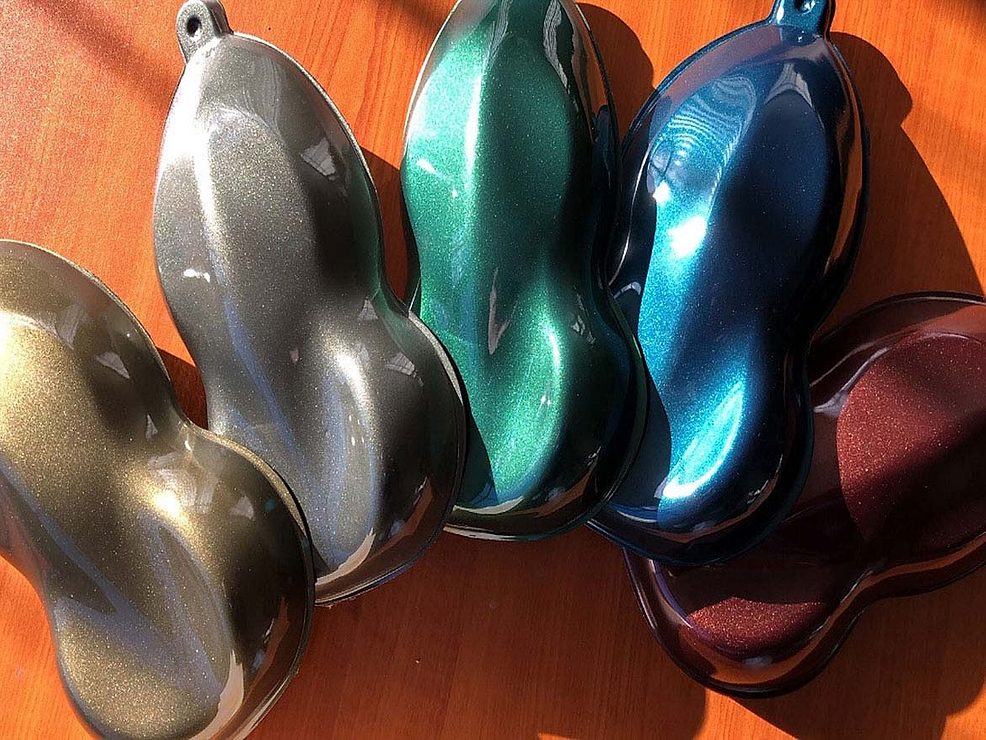Yes, the cure cycle can adversely affect the strength of the material. Peak substrate temperatures should be below 300°F--ideally 275°F. Aluminum billet material and/or alloys change crystal structure at about 410°F. The crystalline realignment at 410°F causes the previous ductile aluminum to become brittle.
The Aluminum Association Inc. describes it this way: Heating aluminum alloys above 275°F causes granular rearrangement of the metallurgical structure resulting in a significant change of bulk properties. Essentially, the tensile strength of the metal is dramatically lowered, much like a stress relief anneal on a steel piece would do.
Consequently, the resultant substrate is not as strong, nor will pressure vessels made of such treated aluminum (e.g., scuba tanks) hold near the pressure that they were originally rated for.
Standards Play Limited Role in Expectations
I am trying to locate a national standard (ASTM, SSPC, Federal Spec, etc.) for specifying powder coating for small coil springs (7.5 inches free length, 1.5 inches coil outside diameter, and a wire size of 1/8 inch). When installed, these springs will be exposed to a seacoast environment in Florida.The standards you reference above are a good starting point for specifying how to run a specific test or how to evaluate results. It is important to remember, however, that these standards generally recommend how tests are set up and performed. They don't specify expectations or failure rate. It is up to the end customer to determine what is acceptable.
The end needs of customers are so varied that a universal standard of what is acceptable would be impossible to define. There are just too many unique circumstances to consider. That is why end customers must determine what quality they are willing to accept and what they are willing to pay.
Your vendors will be more than happy to assist you in setting up the specs. Since they have an understanding of your exact operation and the equipment that you have, they will also be able to estimate what your powder coating line is capable of.
Another starting point may be to find specs from a similar industry and use them as a guide.
Typical items that are included in a powder spec are: coating type, film thickness, color, gloss, hardness, salt spray testing (hours, creepage), QUV (color, gloss), preferred pretreatment, chemical resistance, humidity and chip resistance.
Premature Coating Deterioration
We are a building contractor based in Northern Ireland. We have fitted powder coated aluminum gutter and downpipes and powder coated mild steel handrails to a building situated on an exposed marine environment in Northern Ireland. The items have been exposed to the elements for approximately 18 to 24 months. The powder coating has deteriorated and broken down on various items. Can you give us any advice or information as to why the coating may have broken down in such a short time?Assuming that you and your vendors have selected a powder that is suitable to your conditions, there are several things that can contribute to a coating breaking down over time. It is extremely important that the substrate is clean and corrosion-free before being coated. Even the smallest amount of corrosion can cause problems over time if it is not properly removed before coating.
When the items were installed out in the field, it is possible they were drilled and mechanically fastened to walls and concrete pads. This drilling may have allowed for an entry point for moisture and the elements directly to the raw substrate. Over time, the elements reacting with the substrate will cause corrosion to creep under the coating and cause delamination of the powder coating.
When items are installed in the field, it is recommended that any areas of the substrate that are exposed because of drilling, etc., are sealed after installation is complete. This can be done in various ways, including weatherable caulk and liquid paint touch-up. As a final precaution, we recommend that the sealed items be inspected once installation is completed and then periodically for the duration the items are out in the field.
Michael Wittenhagen is a senior technical service representative with DuPont Powder Coatings.



